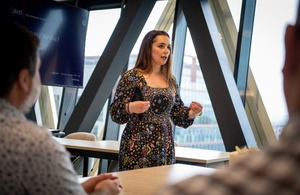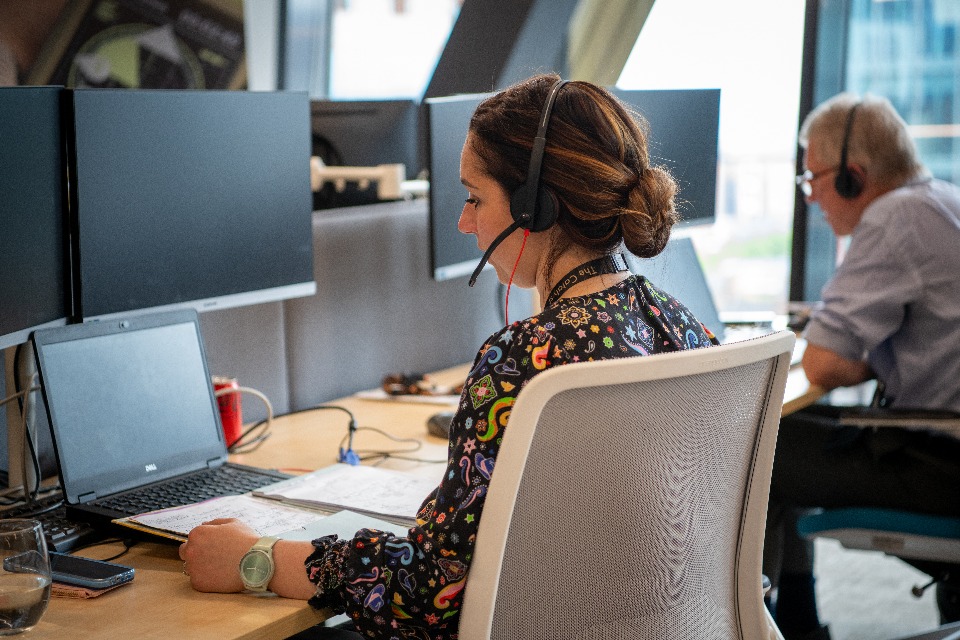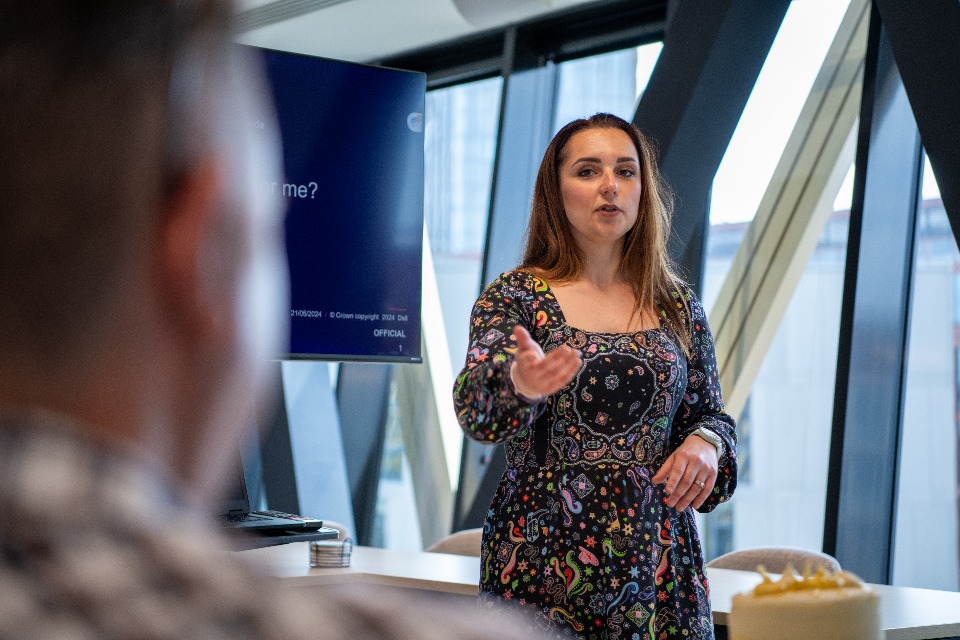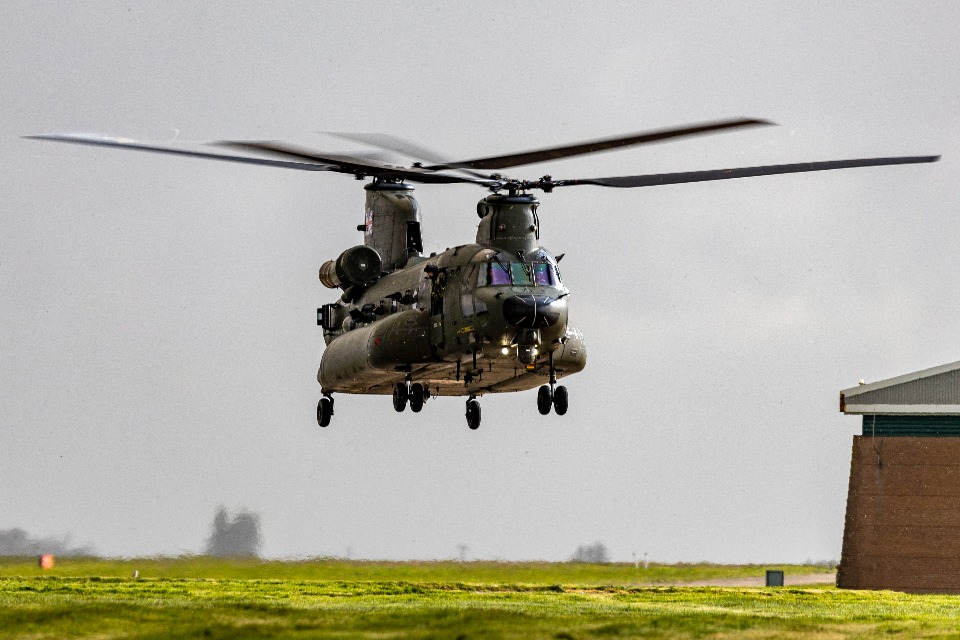Robecca: AI ethics in action
She helps shape the defence and security landscape with her work on the ethics, law and governance of artificial intelligence (AI) capabilities.

Serving her country is literally in her DNA.
With multiple family connections to the military Robecca grew up with a strong sense of duty and a desire to serve her country.
She specialises in the ethics, law and governance of AI-enabled defence and security capabilities, and said she is proud to work for the Defence Science and Technology Laboratory (Dstl) with its focus on keeping our Armed Forces safe.
Robecca said:
“My family connections to the military have been a source of inspiration for me to come and work for Dstl.
“It is that sense of shared values…sense of duty and service is something we share in common even though I am not in uniform.
“I wanted to do something meaningful with my life and give back to my country. Working for Dstl is my way of doing that.”
Robecca’s career
After graduating with a first-class honours degree in forensic psychobiology Robecca worked at the Atomic Weapons Establishment.

Building on her experience in the defence industry, her Dstl career began at the organisations’s Salisbury headquarters 7 years ago, before she worked remotely for 18 months from a military base in New York, USA, as a military spouse.
After returning to the UK, Robecca joined the inaugural Newcastle team when the new site opened in 2022 and where her work helps shape the defence and security landscape.
She said:
“I work at the intersection of what technology can do and what technology should do.
“I make sure that the checks and balances - in terms of ethics, laws, international standards and regulations - are applied to the development and use of artificial intelligence.
“The most exciting thing about my role is working directly with development teams on novel AI capabilities.”

Robecca also says that the rapid evolution of both AI and its surrounding ethical, legal and regulatory landscape make this a complex but critical responsibility.
While on maternity leave, Robecca learned that she had been named one of the global 100 Brilliant Women in AI Ethics 2024 – an accolade recognising her dedication to this work.
She said:
“I work with a lot of really clever people that I admire. I have made a particular effort recently to try and find mentors from other organisations as well; people whose careers I may want to follow. It’s important to show, particularly younger women maybe just starting out in their careers or at secondary school, that there are opportunities like this for people like you.”
Her day in the office can range from leading international workshops to taking part in research trials in the field, with military personnel, and land, air and sea platforms.

Running a Five Eyes workshop
Robecca said:
“I’m most proud of a workshop I ran with about 80 military lawyers and academics from across the Five Eyes - that’s the UK, the US, Australia, Canada and New Zealand.
“That was an opportunity for these lawyers to work together on legal reviews of AI-enabled weapons; exploring the similarities and differences of our approaches, in order to foresee challenges and opportunities to interoperability so that if we were deployed on allied missions, how we might use, share or transfer capabilities or where tensions and difficulties may emerge.
“I’m proud of that because I’m not a lawyer. I almost felt I didn’t deserve at the table but I ended up leading it.”
In her free time, Robecca likes to travel and writes poetry for her children. However, some of her most exciting challenges have come through work.

Highlight of working at Dstl
Robecca said:
“The coolest thing I have done at Dstl was probably collecting data during a military exercise which was hosted in a fort, on a cliff edge. We had Blackhawk helicopters popping up out of nowhere, Chinooks flying overhead, and there was a ship at sea.
“In the pitch black we were standing at the top of this fort looking down on an ‘attack’ unfolding. The only way we could see what was going on was by the red of the flare in the sky.
“I remember thinking to myself ‘I can’t believe I’m getting paid to do this because this is something I would have paid to experience.’ It was extraordinary. And that’s exactly the kind of career I want!”